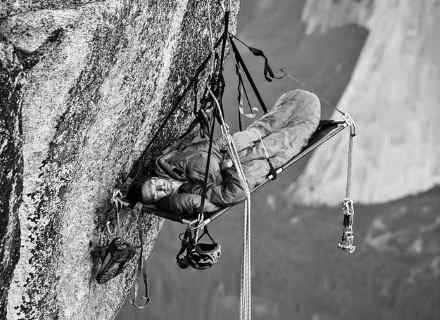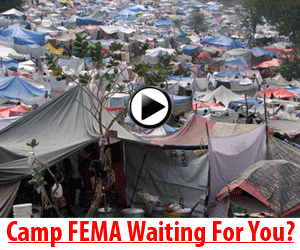Real Life Perspective: How To Survive When Danger Is Right Outside Of Your Front Door
Editor’s Note: Do you want to know what life is like when your country, state or city transitions from relative peace and prosperity to a land plagued with violence, murder, bombing, kidnappings for ransom, and the absence of law & order? We need only look to our southern neighbor, Mexico, where tens of thousands of people, many of them innocent bystanders, have been killed over the last several years. The majority of the blame falls on drug cartel activity, but has its roots in the collapse of the country’s economy due to corruption and greed. While the United States is not nearly as dangerous as Mexico, with millions of people in this country being forced out of jobs, out of their homes, and into poverty, much of what we see happening there today may be ‘normal’ on our own streets in just a few short years. When the danger is right outside of your front door, how will you survive? The following strategies and tips can provide you with some effective methods for keeping your family safe in a world where insanity rules the day.
SECURITY ISSUES IN MEXICO – A FAMILY PERSPECTIVE
When most people consider a wide-spread SHTF scenario, scenes from Mad Max and The Walking Dead flood the mind. But some in the preparedness community are starting to believe that we might not experience a full out collapse, but a partial collapse that would be experienced in pockets throughout the USA. Regardless of what type of collapse is in the future, the truth is that this generation(s) hasn’t experienced anything resembling a time when the danger outside the front door caused normal citizens to pause before venturing out.
But where we haven’t experienced this type of world, people in other parts of the world, including our neighbors to the South have. This article has been contributed by a Mexican citizen who lives in an environment where going out the front door requires constant operational security (OPSEC). The article provides you with a short history of how things came to be so bad and ideas on how you can keep your family safe. You probably won’t agree with all the ideas, but remember, this is coming from someone who has experienced this lifestyle for years.
—————
My family and I live in Monterrey Mexico. This is one of the most important cities in the country. It is a key industrial, educational and financial center and holds the distinction of being the city with the highest income per capita in Mexico. Monterrey was rated by Fortune magazine in 1999 as the best city in Latin America for business and is currently ranked third best by the America Economia magazine. Monterrey´s people have the reputation of being very family oriented, focused on work and education and have a no nonsense attitude. Historically, Monterrey had been one of the safest cities to live in. People from all over Mexico, Latin America and even Canada and the USA, would send their children to study in the top notch schools in Monterrey as they knew their kids would be safe here.
We moved back to Monterrey, after living 10 years in the USA. We wanted our young children to get in touch with their roots and to fully experience what it is like to live close to all your extended family. Our parents were getting older and we wanted them to enjoy their grandchildren as well.
At the time of our return, you could start hearing conversations in social gatherings about the violence increasing in border towns south of Texas like Reynosa, Matamoros and Laredo. Everybody knew that the violence was caused by drug cartels, but in Monterrey, everybody thought that crime would remain contained in those cities. A couple of years latter however, people started telling stories of drug peddling and drug related incidents staring to happen at Clubs or “Antros” as they are known here. El Barrio Antiguo or Old Neighborhood in downtown Monterrey was the party center on the weekends for young adults; very much like Bourbon Street in New Orleans. People speculated that those clubs were controlled by organized crime, but as long as things were relatively under control, it was perceived as an acceptable reality associated to all modern growing cities.
But soon after, other things started happening for the first time in Monterrey, things that in the mind of the locals only happened in Hollywood movies like: drive by shootings and car chases, robberies, kidnappings and extortion. People were not use to hearing about these kinds of events in Monterrey. Panic grew rampant as the local authorities tried to invalidate and diminish the incidents. After a while, it was evident to all that this problem had been brewing for decades, due to government corruption and collusion with organized crime as well as a total lack of expertise to deal with now well-armed criminals.
The police forces were infiltrated and many of their members were actually on the payroll of the drug cartels. The number of armed carjackings shot up insanely fast in the city, to the point where it was a gamble just to go to the grocery store or drop your kid at school. People talked about how bad it was getting, but the authorities kept stating that the perception was much distorted and that the numbers of reported crimes was very small. This was partially true as the common citizen knew that many of the members of the police forces were actually involved in the crimes, so reporting it was a moot point and perhaps even dangerous as there could be retaliations from the criminals.
The drug cartels started to diversify their activities and expanded into other areas. In the beginning you would hear of a friend of a friend who got carjacked, extorted,robbed or kidnapped. However, after a while it started to get closer to home. Unfortunately, direct relatives and very close friends started being the victims of these crimes to the point where people started moving out of Mexico altogether if they could afford it.
In early 2008, President Calderon sent Army troops to try to regain control of the cities in the states of Nuevo León (where Monterrey is located) and the state of Tamaulipas. The troops were received like heroes by the citizens while local authorities, even the good ones, were not thrilled about the presence of the Army on their turf. Personally, I was thrilled to see them arrive in Monterrey; no one really trusted a lot of the members of the existing local police. Calderon´s strategy was to attack directly at the heads of the criminal organizations and to dismantle their structure. This kind of frontal attack caused many casualties and also the splintering of criminal groups into less organized, but more violent smaller cells. For the next couple of years, crime rates soared to incredible levels as the authorities rushed to purge local police forces and create a new centralized state force with better educated individuals who were better trained, better compensated and were viewed by society as a genuine police officer that was truly there to serve and protect.
Citizen groups and NGO´s started demanding results from the authorities and started getting increasingly involved in the planning and the monitoring of security strategies and programs. Increased citizen participation has been a positive consequence of this all too negative security situation.
Family Concerns
We never kept our children isolated from what was happening. We were going against the more prevalent philosophy of “don´t tell them as they will get unnecessarily scared. This is only temporary.” We had chats with our children that were adjusted to their ages when all this started. We did have to deal with some occasional night scares, but that happens even if they watch a movie that might have a scary scene. We also found out that even with our smallest child, his friends were talking about the security situation at school. Our kid had the advantage of having reliable information from his parents rather than the information mixed with fantasy he was hearing on the school playground. During these chats we asked them to speak their mind and express their fears or concerns. Then we would tell them how we, as a family, were going to address those concerns.
While all these events are still going on, we must carry on with our family life as best as we can. We have to go to work, go to school, visit family and friends and attend our kid’s sporting events. As a result of the situation and our experiences, we have implemented some strategies that might be of help to you and your family in the event of a social, economic or natural disaster.
We believe that the best way to prevent being a victim of crime is to avoid unnecessary risks and to have an action plan. Here are some ideas that we implemented and that you might find useful:
- Everybody in our family needed to be onboard. We had to deal with some “difficult customers,” especially our teenage children. In the end, reason (and parental authority) prevailed.
- We established strict curfew rules. Our children could not be out later than midnight, even if the party was just started or their friends got permission from their parents to stay later. Parties in Mexico start late and end VERY late. Sometimes our kids don´t even get invited to some parties because their friends know of this rule and they respect it.
- “Antros” or Clubs are off limits until further notice, even if they are in safer parts of town.
- We only drive in areas of town that are safer based on newspaper and official crime statistics.
- We try to schedule our friends and family gatherings in safer areas of town and at earlier times than before. We like to party so this has been one of the hardest things to implement.
- We moved our family home to the safest area in the city. We thank God we had the financial possibility to do this.
- We installed CCTV cameras on the outside and some inside areas of our home. There is a secured DVR recording a 30 day loop of events. We can monitor our home from any laptop or smartphone with an internet connection.
- We keep as low profile as possible. Even if we can afford it, we feel it is best to avoid luxury cars, flashy clothes or jewelry.
- We always assume somebody might be listening to our conversations. We never talk about expensive vacations or business dealings in restaurants and other public places or when outsiders are present.
- We take several different routes to and from our routine daily destinations like work and school.
- We alternate vehicles amongst family members.
- We never drive at night when traveling by car to another city, especially when we drive to the Texas border. This is a shame as road trips with the kids were a family favorite before all this started.
- We are very careful about the information posted on our social network profiles. These sites have been a goldmine for kidnappers and extortionist.
- We only answer phone calls from known numbers. Everybody else can leave a message! There are a lot of “simulated kidnappings” scams and people do fall for them. It is best just to avoid being in that situation altogether. I have personally received six or seven phone calls both at home and at my cell phone from people trying to pull this scam off. Even if you detect it is a scam right away, you get frightened. Believe me; those guys know how to push your fear buttons.
- We have a family code word in case of – God forbid- a kidnapping. If the bad guy calling for ransom does not know it, we know it is a fake. This is a risky strategy, but it is better to have it than not. We had to use this tactic once and I am darn glad we had implemented it, otherwise we would have fallen for it. Those guys had well-honed skills.
- We shred all our documents before we throw them in the trash.
- Most of our bank and credit card info is electronic now and we have secure machines from which we access our banks through the Internet. These machines are different from the ones used for Facebook, Netflix, e-mails and web surfing.
- We never use ATM´s at night, even if they are in safer parts of town. In fact, we avoid using them as much as possible.
- Our wallets only have the bare minimal items, just one ID and just one credit card. If you can do it, carry an ID that does not show sensitive personal information. Sometimes this is difficult to do. Our local DMV started giving the option to get a driver’s license that does not show your address on it.
- Insurance documents in our cars have our address blacked out.
- We never keep or store anything other than essential items in our cars in case they are hijacked.
- EVERYBODY that drives in our family knows what to do in case of a car hijack: never look the criminal in the eye, never offer any resistance and NEVER get inside the car even if they threaten to shoot you. Your odds of surviving are better if you run away, even at the risk of being shot.
- All our family members (even the youngest one) know how to safely handle a gun and how to use it if it becomes necessary. In Mexico, you can legally own a pistol up to a .38 caliber for personal protection at home or sport shooting at a licensed shooting range. You also have to be a member of a hunting club. However, ordinary citizens are not allowed to carry it with them or in their cars unless it is unloaded and you are traveling to or from the shooting range. My kids have fired .45 caliber semi-automatics at a range in the USA. But in Mexico, .45 and 9 millimeter calibers are for the exclusive use of the armed forces. And although many view this differently in the USA, here it is not necessarily a good idea to carry a gun in your car for protection. First of all it is illegal and will get you in serious trouble with the law, and if you become a victim of carjacking the bad guys who usually carry assault rifles can confuse you with a member of a rival group. This is a sure death sentence.
It is important to keep in mind that even if some of the crimes shown in the news are horrific, most of the victims are criminals. According to statistics from the American Chamber of Commerce in Mexico, 90% of the victims of murder are cartel members, 7% are law enforcement personnel and 3% are civilians. Monterrey is still safer than many large cities in the USA, like Detroit, Memphis, New Orleans and Orlando when comparing number of serious crimes/100,000 people.
I certainly hope that things will improve. You can see that the performance metrics are heading in the right direction, but I am sure they will never get to the low levels of yesteryear. Nevertheless, Monterrey and Mexico, as a whole, is a fantastic place to do business, live and raise your family. You just need to be conscious that you live in a city that is home to more than 5 million people, and that the overwhelming majority are law abiding citizens that just want to work, live, grow and enjoy their families. The current authorities and Mexican citizens are doing much better at trying to resolve this multifaceted challenge. We know that it can only be improved if all stake holders get involved and do their part. It will take time, but there is a very tangible effort being made by society at large to improve life and opportunities for everybody. Nowadays in Mexico, apathy towards societal issues is no longer an option. We have learned that if people keep silent, unaware or uninvolved, problems don’t go away. This is a big part of what got us where we are now.
Survival MD (Best Post Collapse First Aid Survival Guide Ever)
Backyard Innovator (A Self Sustaining Source Of Fresh Meat,Vegetables And Clean Drinking Water)
Blackout USA (EMP survival and preparedness)
Conquering the coming collapse (Financial advice and preparedness )
Liberty Generator (Build and make your own energy source)
Backyard Liberty (Easy and cheap DIY Aquaponic system to grow your organic and living food bank)
Bullet Proof Home (A Prepper’s Guide in Safeguarding a Home )
Family Self Defense (Best Self Defense Strategies For You And Your Family)
Sold Out After Crisis (Best 37 Items To Hoard For A Long Term Crisis)
Survive The End Days (Biggest Cover Up Of Our President)
This article has been shared with our community by Todd Sepulveda and was originally published at Education That Matters, a web site dedicated to preparedness and post-collapse education. Todd is the publisher of The Preparedness Review, a quarterly archiving project which he has made available for free in an effort to spread the knowledge and skills contributed by many experts in the fields of preparedness, education and self reliance. You can follow Todd’s widely read and regularly updated survival and preparedness recommendations at The Prepper Website daily.



